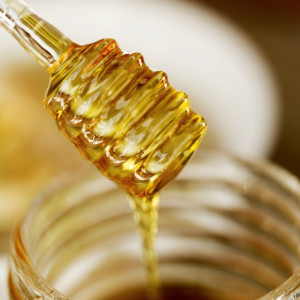There are so many types of sugars out there, it can be completely confusing!
I get asked many times by my clients and attendees of my nutrition 101 talks about the difference between the alternatives of sugars and which ones are “healthier” than the others.
So let’s look at some popular sugar alternatives today.
Stevia:
Stevia is herb native to South America, from the leaves of Stevia Rebaudiana. It is naturally sweet- almost 300% sweeter, but with zero calories.
It’s available in liquid or powdered form, and it has a potential after-taste. I find the after taste a bit bitter.
Xylitol:
It is chemically processed from the Birch tree/bark. It may inhibit bacterial growth in the mouth.
Having too much of xylitol will quickly cause gastric distress, as it may ferment in the intestines, causing bloating, gas or diarrhea.
It is as sweet as sugar but has 40% less calories than real sugar. It does not work well in breads.
Honey:
Honey, especially raw honey is better than white sugar, because it contains only about 30% glucose, 40% fructose and 20% or so a mix of sugars which are more complex in nature to break down. So the body has to expend more energy to break it down and it doesn’t raise your blood sugar levels like white sugar would.
The biggest plus point of honey is that it’s all natural without added preservatives or chemicals, and may even contain traces of zinc, selenium and some vitamins depending on where it’s collected from.
Coconut Sugar
This is gaining popularity quickly these days. It is made from the sap collected from the flower of coconut palm tree which is then evaporated under heat.
Like honey it may retain nutrients like iron, zinc, calcium and potassium alongwith some short chain fatty acids and antioxidants from the coconut palm.
Coconut sugar also contains inulin which is a type of fibre and that helps to lower its glycemic index evaluated at around 35 compared to than table sugar which is about 60.
Since coconut sugar does have a strong taste to it, I prefer to use it for baking and in puddings like rice pudding or ‘kheer’ which is the Indian equivalent to rice pudding made either with rice, semolina or vermicelli.
Maple Syrup:
It is made from the sap collected from maple trees which has been evaporated under heat to release the sugars. Maple syrup’s glycemic index is close to that of sugar at around 54, so caution is needed when consuming excess of it.
It also contains antioxidants and minerals like calcium, potassium, iron, zinc and manganese.
Brown Sugar
Brown sugar is just white sugar with molasses added to it. It is no better than table sugar! Brown or white, liquid or solid, a gram of sugar is still 4 calories of pure carbohydrate with few minerals, no fibre, good fat or protein.
- Tip: Try Coconut Sugar aka Succanut instead of brown sugar, as it’s lower on the Glycemic Index.
Artificial sweeteners:
These include Saccharin, Aspartame, Splenda, Equal, Nutrasweet, Neotame etc.
I would caution you strongly against the use of these, even if you have Type 2 Diabetes. It is best to remain sugar free and slowly adjust your taste buds, over consuming artificial sweeteners.
You can check out my article about it to learn more as to why here: https://saakori.com/gaining-weight-by-going-diet/
Since the sugar alternatives are a lot sweeter, you need lesser amounts of these as compared to table/ white sugars. Here’s a conversion chart to guide you.
Please remember these are approximates only and you may have to experiment a bit to get to your desired levels of sweetness.
Conversion Chart
1 cup of white sugar = 2 tablespoons powdered Stevia or 1 teaspoon liquid Stevia
1 cup of white sugar =1 cup xylitol
1 cup of white sugar = ½ cup honey
1 cup of white sugar = ½ cup plus 1 teaspoon maple syrup
1 cup of white sugar =1 cup coconut palm sugar
Hope you found this guide helpful, and so feel free to share this with your friend and family.
I’d love to hear what sugar alternatives do you use and how you have adapted conventional recipes to be more healthy?
Leave me comment or write to me at info@saakori.com
EatRightFeelBetterLookGood #EasyPracticalNutrition #SustainableLifestyle






